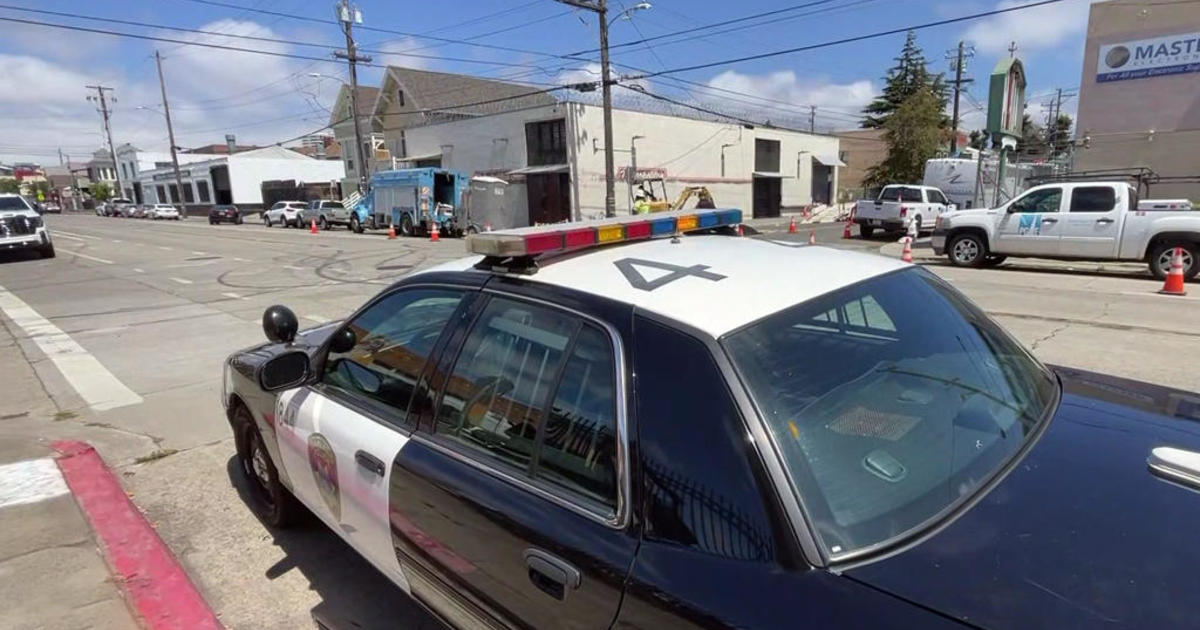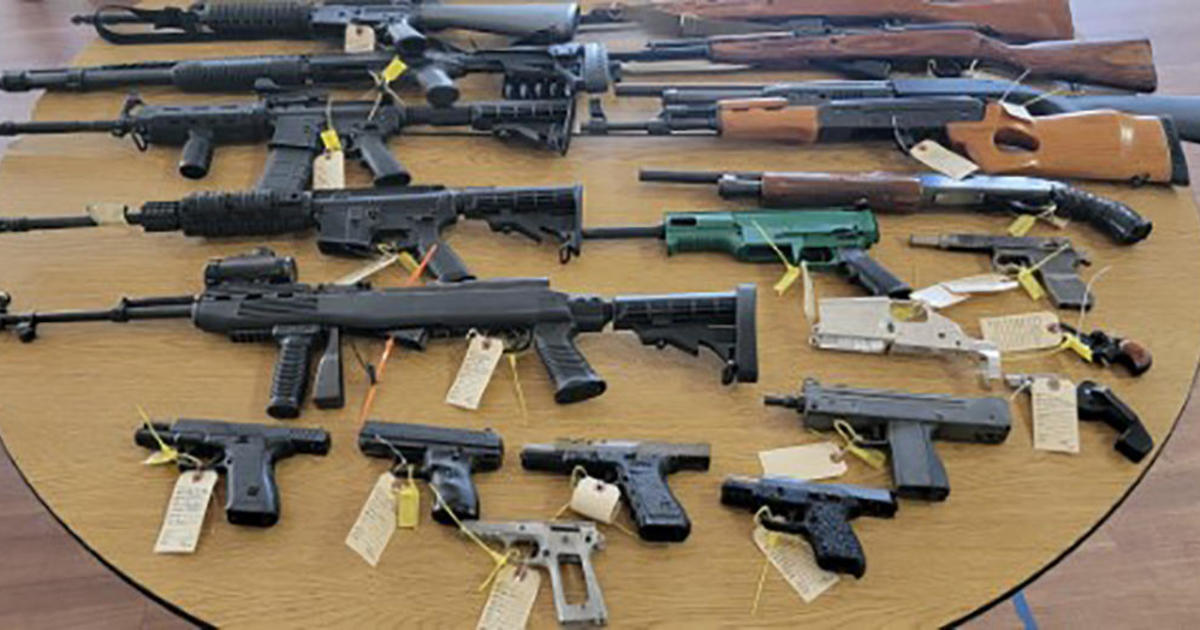Violent War On Drugs Prompts Bay Area Police To Stop Training Philippine National Police Force
SAN FRANCISCO (KPIX 5) -- Bay Area law enforcement officers will no longer train members of the Philippine National Police Force because of a bloody war on drugs that has seen Philippine police killing drug users and drug dealers.
KPIX 5 reporter Cate Cauguiran was in the Philippines recently and sat down with the head of the Philippine National Police. And he told her the killings will continue.
The San Francisco Police Department says they've ended their partnership training because of "…concerns over allegations of civil rights and human rights violations in the Philippines."
California law enforcement officers did a mission in the Philippines just last year.
They did charity work in schools, trained the Philippine national police on how to better fight crime and donated police equipment.
San Francisco Police Department Retired Lieutenant Eric Quema is an organizer with the Philippine exchange training program.
It's been a 16-year-long partnership that's now over.
The end of the partnership is just one of the casualties of the Philippines' war on drugs.
Months ago, newly-elected President Rodrigo Duterte (pronounced do-tur-tee) launched a fierce campaign, calling for drug dealers and drug addicts to turn themselves in or face death.
Since June 30, 2016 an estimated 2,300 people have been killed.
The Philippine National Police admits they've killed more than 1,500 people and that the others were taken out by suspected vigilante groups.
Filipino-Americans like Lt. Quema are torn.
Lt.Quema said of the Phillipines, "Our nation is in turmoil and trouble and it just gets worse and worse...it's disappointing to me."
Philippine National Police Chief Ronald dela Rosa spoke with KPIX 5 at Camp Crame, police headquarters in Manila, just weeks after he was appointed.
Chief dela Rosa said the Filipino people "perceive me as their hope together with the president in eradicating the drug nuisance and the criminality in this country."
President Duterte and Chief dela Rosa promise to clean up the drug problem by next summer.
Chief dela Rosa said, "They should pay for the crimes they are doing. They should pay for that."
When asked if he thought death was an appropriate punishment, he said, "It depends. If we cannot get them, we cannot get them in the regular manner or legal way, there are other options. And I did not discuss it with you."
The Philippine Drug Enforcement Agency says there are 3 million drug addicts in the country, many addicted to shabu, the Philippines version of crystal meth.
The country's brutal tactics have caught the attention of the United Nations, United States and European Union.
But president Duterte doesn't care.
On September 5, 2016, Duterte said, "The campaign against drugs will continue...plenty will be killed until the last pusher is out of the streets. Until the drug manufacturer is killed we will continue and I will continue and I don't give a s*** about anybody observing my behavior."
Filipinos fed up with the drug epidemic love him.
76 percent of Filipinos give him a high satisfaction rating and 84 percent say they trust him.
The president is even featured as the hero in an online video game called "Fighting Crime" in which he is shown blowing criminals' heads off.
Police chief dela Rosa, known by his Tagalog nickname Bato -- which means the rock -- uses a machine gun in the game.
So far two million people have downloaded the game.
Lt. Quema championed diplomacy, saying "fighting back and forth just drags everybody down and it breaks ties that have been historically there for years."
But the only talking the Filipino government seems willing to do is hardly diplomatic.
Just last week, President Duterte told President Barack Obama he could go to hell.
And he's made it clear, his unapologetically brutal war on drugs will continue.
No drug dealer, not even small-time drug user is safe.
Chief dela Rosa had a message for his enemies. He said, "I want them to know that I am your best friend but your worst enemy. You can be my friend or you can be my enemy. If I am your friend, I am your best friend. If I am your enemy, I am your worst enemy. I won't stop until I get you."
The Philippines has been the United States' strongest ally in Southeast Asia.
But President Duterte has called on all American forces to leave the country and has said he wants to strengthen ties with China.



